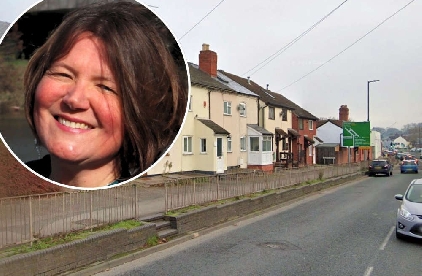
Shropshire Council has been cleared of wrongdoing after a mother complained that it was failing to provide alternative education for her child who could not attend school.
The Local Government and Social Care Ombudsman ruled there was no fault in the way the council reached its decision that there was not enough evidence to explain the child’s non-attendance.
However, the ombudsman said the council was at fault for failing to communicate clearly with the child’s mother over the issue, and for delays in handling her complaint.
The council said it would make improvements to ensure it communicates more clearly in future.
The child’s mother, named in the ombudsman report as Mrs B, requested alternative provision for her daughter after she was unable to return to school after last year’s Easter holidays due to her mental health and school-based anxiety.
Early Help was suggested and Mrs B contacted the council to ask what this would achieve and how it would help her daughter, named in the report as C, to return to school, but did not receive a reply. She emailed again a week later to chase for a response.
The council emailed Mrs B the following day to invite her to a meeting with the school and Early Help, but did not answer her questions.
Mrs B could not attend the meeting, so the three alternative dates were provided. Mrs B said she could not attend on the suggested dates, and added that she could not confirm a date until her questions about Early Help were answered.
In June, the school asked for permission to consult with C’s GP and suggested weekly check-ins with the child. Mrs B did not agree.
In July the council and the school met to discuss C’s absence. The council emailed Mrs B to offer a reintegration meeting to plan for the child’s return to school, but Mrs B said she would not attend a meeting until her questions were answered.
In September the council put forward suggestions for how C could be supported to return to school, but Mrs B did not agree with what was offered.
In November, the council wrote to Mrs B to inform her it would consider starting legal proceedings if she did not send her daughter to school.
The ombudsman report says the council is not satisfied that there is enough evidence to justify why the child cannot attend school.
It says: “It is for the council to decide whether a child’s health needs prevent them from attending school and what weight to give medical evidence.
“The council has also attended meetings with the school to understand what support it can offer C.
“It is satisfied, in the absence of any other medical evidence, the offers of a reduced timetable, one-to-one support and small group sessions is appropriate for C and there is a suitable education available for her which is reasonably practicable for her to access.
“I appreciate Mrs B strongly disagrees with this and feels C is too unwell to attend school.
“However, the ombudsman cannot question the merits of a decision when there is no evidence of fault in the way the decision was reached.
“The council has considered everything we would expect it to when deciding not to provide C with alternative provision. Therefore, I do not find fault.”
However the report goes on to say the council was at fault for ignoring Mrs B’s questions and failing to explain its reasons for not arranging alternative provision. The report says this “caused Mrs B frustration”.
A further fault was identified in that the council was two months late responding to Mrs B’s initial complaint.
The ombudsman ruled that the council should apologise to Mrs B for these faults.
A council spokesperson said: “We acknowledge and understand the concerns made by the individual and have apologised for any inconvenience caused.
“We take the wellbeing and education of young people very seriously and will always work with them and their families to ensure their needs are met.
“We welcome the findings from the ombudsman and we will take any steps necessary to ensure that our communication and complaints processes are applied appropriately in future.”


 County ‘needs to stop using this chemical’ says North Herefordshire MP
County ‘needs to stop using this chemical’ says North Herefordshire MP
 Body found in search for missing man from Ross-on-Wye
Body found in search for missing man from Ross-on-Wye
 Plans for solar farm near Bromyard
Plans for solar farm near Bromyard
 Man dies following collision in the Forest of Dean
Man dies following collision in the Forest of Dean
 Missing man could be in Forest of Dean
Missing man could be in Forest of Dean
 Witness appeal following death of a man in Ross-on-Wye
Witness appeal following death of a man in Ross-on-Wye
 Two cash machines stolen from M5 services
Two cash machines stolen from M5 services
 Ledbury man charged with production of cannabis
Ledbury man charged with production of cannabis

